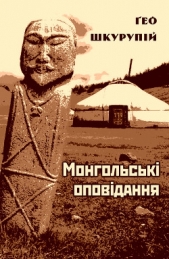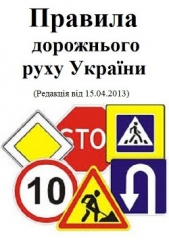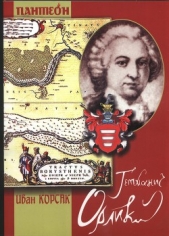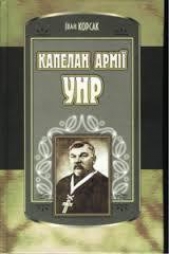Iмена твоi, Украiно
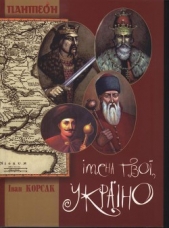
Iмена твоi, Украiно читать книгу онлайн
«Імена твої, Україно», книга знаного літератора з Волині Івана Корсака, повертає нас обличчям до постатей української історії, замовчуваних або забутих. Ту вміщено двадцять сім оповідок про уродженців нашої землі, яким була суджена вельми непересічна доля.Унікальністю книги є публікація в ній на підтвердження уривків з оригіналів польською, англійською, французькою та іншими мовами, аби читач впевнився, що автор суворо дотримується правди.
Внимание! Книга может содержать контент только для совершеннолетних. Для несовершеннолетних чтение данного контента СТРОГО ЗАПРЕЩЕНО! Если в книге присутствует наличие пропаганды ЛГБТ и другого, запрещенного контента - просьба написать на почту [email protected] для удаления материала
appear in Volodymyr’s policy even after his turn toward Byzantium, that policy was now
190190
dominated by the necessity of settling the various problems raised by his cooperation with
Basil II, the powerful Greek emperor whose sister he received in marriage a year after being
baptized in Kyiv. The agreement was completed in Khersonesees, an old Greek colony in
the Crimea which Volodymyr besieged and conquered in 989. When the pressure which he
thus exercised upon the emperor proved successful and the wedding with Princess Anna
had taken place, Volodymyr returned the city to Basil II».
Oscar Halecki «History of East Central Europe: PART II – THE MEDIEVAL
TRADITION», New York: The Ronald Press Company, 1952.
[3] «Але, незважаючи на непостійні стосунки із Римом та Західною Імперією,
які були частиною політики Володимира навіть після його повернення до Візантії,
у тій політиці тепер домінувала необхідність розв’язання різних проблем. Вони
виникли з його співпраці із Василем ІІ, великим грецьким імператором, з сестрою
якого він одружився через рік після того, як був охрещений в Києві. Угода було
укладено в Херсонесі, у старій грецькій колонії в Криму, яку Володимир взяв в
облогу та завоював 989 року. Коли його тиск на імператора приніс успіх і відбулося
його весілля із Анною, Володимир повернув місто Василю ІІ».
Халекі Оскар. Історія Центрально-Східної Європи: Частина ІІ –
середньовічна традиція. – Нью-Йорк: Роналд Прес Компані, 1952.
[4] http://home.catholicweb.com/StMaryApopka/index.cfm/NewsItem?ID=116422&
From=Home
Сайт St. Mary, Protectress Ukrainian Catholic Church, Apopka (Orlando area),
FL (Св. Марії, Української Католицької Церкви Захисниці, Апопка (територія
Орландо), штат Флорида:
«Thus, Volodymyr had his answer. Rus’ would become a Christian nation, and he set
out to achieve this in true barbarian fashion. With his armies, he besieged and captured
Khersonesees in the Crimea, the last city of his realm still under imperial control. He then
threatened to march on Constantinople if the emperor would not give his sister, Anna, to
him in marriage. Being beset with problems elsewhere, the emperor reluctantly consented
to this. Volodymyr was baptized at Khersonesees (now Khersonese), and received Princess
Anna in Christian marriage. Returning to Kyiv, he dismissed his five pagan wives and
initiated his campaign of Christianization».
[4] «Таким чином Володимир отримав відповідь. Русь стане християнською
нацією, і він досягне цього по-варварськи. З військом він узяв в облогу та захопив
кримське місто Херсонес, єдине місто на цій території, що ще й досі було під владою
імперії. Потім він погрожував піти на Константинополь, якщо його імператор не
віддасть своєї сестри Анни Володимиру в жони. Маючи багато інших проблем,
імператор неохоче погодився. Князь Володимир був охрещений в Херсонесі та уклав
із Анною християнський шлюб. Повертаючись до Києва, він розлучився із п’ятьма
своїми дружинами та зініціював християнізацію».
191
[5] http://www.geocities.com/Athens/9529/ruschron.htm
«The second item in the chronological entries that requires discussion is the depiction
of Volodymyr’s conversion to Christianity. Volodymyr needs to incur three different
reasons to be baptized before he actually does it. First, there is the compelling argument of
the envoy from Greece, the reason of the mind. Second, there is the battlefield promise in
Khersonesees, the reason of the spirit. Third, there is the promise of marriage to Anna, the
reason of the body. And indeed, directly after the baptism of Volodymyr, Nestor launches
into the defense of the Holy Trinity. Volodymyr is, of course, important to the Christian
themes as he subsequently directs the conversion of the entire country, and thus directly
connects the state with its divine purpose as set out in St. Andrew’s prophecy. There are
however many subtle themes of secular, religious and indeed pagan values in the depiction
of Volodymyr’s conversion».
«It was necessary in the text to show Anna’s reluctance to marry Volodymyr, in order
to show that Anna too was a martyr, yet the Varangians were spiritual martyrs but Anna was
a secular martyr for the Greeks. We also have symmetric pairings between Volodymyr’s
all-consuming lust for women and the all-consuming thirst for the Holy Trinity».
«EVALUATION OF THE PRIMARY CHRONICLE: AN ANALYSIS OF
NATIONAL CHARACTER THEMES» by Hugh R. Whinfrey.
[5] «Другим пунктом в хронологічних статтях, що вимагає обговорення, є
зображення переходу Володимира в християнство. Володимиру треба було зважити
на три різні причини для охрещення, перш ніж це зробити. По-перше, є вагомий
доказ посланця з Греції – причина розуму. По-друге, є обіцянка на полі бою в
Херсонесі – причина духу. По-третє, є обіцянка одружитися з Анною – причина
тіла. А насправді відразу після хрещення Володимира Нестор стає на захист Святої
Трійці. Володимир, звичайно, є важливою особою для тем християнства, оскільки
він пізніше проводить християнізацію всієї країни й таким чином прямо пов’язує
державу із божественною метою, (як це було сказано у пророцтві Св. Андрія). Однак
є багато делікатних тем про мирські, релігійні та насправді язичницькі цінності у
зображенні хрещення Володимира».
«Обов’язковим в тексті було показати вагання Анни при одруженні з Володимиром
для того, щоб зобразити Анну у вигляді мученниці. Хоча варяги були духовними
мучениками, Анна в очах греків вважалася мирською (мученицею). Ми також маємо
симетричне розміщення пар між всепоглинаючою пристрастю Володимира до жінок
та всепоглинаючою жагою до Святої Трійці».
Вінфрі Х’ю, «Оцінка Раннього Літопису: аналіз тем про національних осіб»
[6] http://www.catholicism.org/russia-conversion.html
«In 988, he besieged and conquered the city of Khersonese on the Crimean peninsula,
a territory belonging to the Eastern Empire. Thereupon he sent envoys to Emperor Basil II
asking for Basil’s sister, Anna, in marriage. If this request were not granted, the envoys said,
Volodymyr would march on Constantinople. Basil answered that a Christian could not marry
a pagan, but if Volodymyr were baptized the proposed alliance could take place. Volodymyr
replied that he had been studying Christian teachings and was ready for baptism.
192192
Some Russian historians speculate that Volodymyr was already determined to become
a Christian, but hesitated on account of the «scandal» his conversion might provoke among
some of his pagan subjects. It is supposed that if his conversion appeared to be for reasons
of state, it would be more acceptable. In any event, Basil sent his sister to Khersonese,
Volodymyr was baptized, and the couple wedded.
Legend has it that Volodymyr was struck by a mysterious blindness before Anna’s
arrival, and that his vision was restored by the water of his baptism. Whether or not this
really happened, unauthenticated as it is by historical documents, the story does point up
